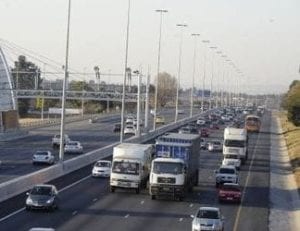Government won its Constitutional Court battle to re-instate e-tolling, but the war is not over as civil society groups look to the public consultation process and a court review.
Wayne Duvenage, chairman of the Opposition to Urban Tolling Alliance, said on Friday the judgment did not impinge on the alliance’s case in the high court review. “By setting aside the interdict, the Constitutional Court has effectively sent a message to the courts to refrain from applying temporary interdicts against the implementation of policy decisions made by government,” he said. That did not mean citizens could not go to court over decisions that were “irrational, unreasonable, unjustified, unconstitutional or not in the best interests of its citizens”. The alliance hoped for an “equitable and sustainable outcome” from its engagement with the inter-ministerial committee headed by Deputy President Kgalema Motlanthe. Cosatu warned government not to “even think about implementing e-tolls” before these public consultations were over. “Should they do so, Cosatu will oppose them with every power we have,” said spokesman Patrick Craven. Handing down judgment in the case brought by Treasury and the South African National Roads Agency (Sanral) on Thursday, Deputy Chief Justice Dikgang Moseneke said the North Gauteng High Court failed to consider separation of powers in granting an interdict against the start of Gauteng e-tolling before November’s High Court review.Moseneke said courts ” must refrain from entering the exclusive terrain of the executive and the legislative branches of government, unless the intrusion is mandated by the constitution itself”.
He said the High Court should have considered that the financial harm that would befall Gauteng motorists did not outweigh the harm to the state. Sanral incurred a R21-billion bill on the Gauteng Freeway Improvement Project (GFIP) and chose tolls as a way to cover the debt. “The immediate and ongoing result of the interdict is that Treasury, the executive government and the national legislature will have to allocate R270-million per month to Sanral in order to meet its ongoing capital and interest repayments in respect of the GFIP,” said Moseneke. “Thus the order has wide-ranging consequences for national finances and the management of our country’s sovereign debt.” Moseneke’s emphasis on the separation of powers raised questions about whether the tolls can be scrapped following the judicial review. Source: http://www.bdlive.co.za






